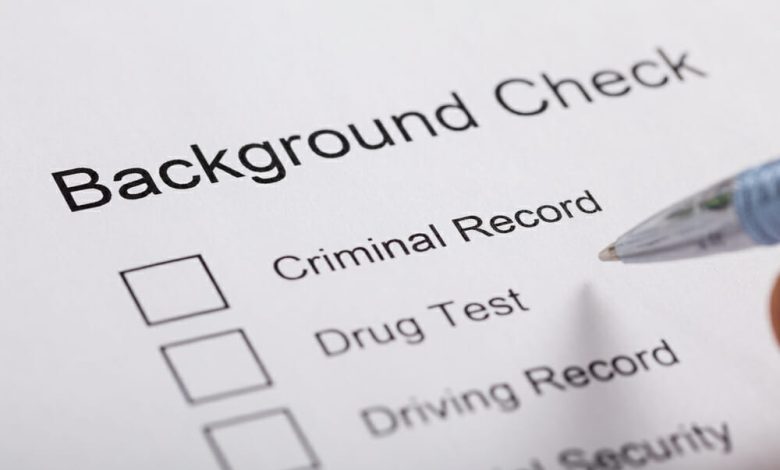Guidelines for Conducting a Criminal History Check

A criminal background check is vital for mitigating risk, protecting your brand’s reputation, and making more informed hiring decisions.
A criminal background check searches national and local records to identify any reportable criminal records associated with your candidates. These records may include sex offender registries, domestic and global watchlists, etc.
Look at the Sources
When conducting a comprehensive criminal history check, you should look at all the sources of information. It includes local, state, and federal databases.
It is especially true of criminal history records because the methods in which they are stored and the laws governing their use vary by jurisdiction. In addition, the types of disposition data reflected on these records vary by the agency (police department, prosecutor, court) and by statute or regulation. Understanding how these records are compiled and used before you perform a criminal background check is essential.
Look at the Time Frame
Undoubtedly, a comprehensive criminal history check and elbow grease will take some time. A standard FBI check takes around 30 days to complete, and some employers opt for a more robust pre-employment screening program that includes more than just a background check. Depending on the agency and the individual checking, the big picture can take as little as a few hours or several days to complete. Nevertheless, most employers will take the time to review a potential employee’s entire history before making a hiring or firing decision.
Look at the Offenses
The legal ramifications of breaking the law can vary from minor fines to jail time. Nevertheless, no matter the severity of the crime, there are inevitable legal and social consequences that may be hard to shake off or overcome.
The best way to learn about these is to look at all aspects of your prospective employee’s background. Reviewing their pertinent legal and medical records is a brilliant place to start. It will enable you to make informed hiring decisions. It may also alert you to any criminal history red flags that might not be obvious to you or your HR team.
Look at the Expungements
Expungements can clear arrests and convictions from public records, reducing the likelihood that a criminal history will impact employment, housing, and licensing. However, only some people are eligible for these remedies, and their laws vary from state to state.
In some states, a court may also order criminal record sealing. This process also protects defendants from having their records disclosed in background checks.
Look at the Courts
A criminal history check typically includes a search of felony and misdemeanor convictions at the county, state, national, or federal levels. It also often incorporates standalone sex offender registry searches to detect current and past sex crimes in an employee’s background.
The courts are an essential component of any comprehensive criminal history search. However, searching one database or jurisdiction alone may provide only some necessary information. A multi-court search combined with the best state, national, and county data sources ensures that your background check is comprehensive and accurate.
Look at the Records
When conducting a criminal background check, it’s essential to look at all of the records of an applicant. It means looking at the documents on local, state, and federal databases and court records.
It can include:
- Convictions for felonies and misdemeanors.
- Arrests.
- Pending charges and non-convictions that have been expunged or sealed.
It also includes sex offender registry searches and other records that might reveal something about an applicant’s behavior or reputation. The information can make a difference in your hiring decisions, so it’s critical to get it right.
Look at the Expenses
A background check can cost a lot of money, depending on what you want to find out. It includes the fee that a screening company (also known as a consumer reporting agency or CRA) charges and the access fees that a courthouse in your state or county charges for their records.
Criminal background checks can reveal federal crimes that violate federal law, such as tax evasion, embezzlement, or mail fraud. But they can also uncover misdemeanors and felonies under seven years old or pending cases.
When it comes to background checks, the cost of the screening can vary by agency. Many agencies offer bundled plans that range from basic to premium. These packages typically include criminal and identity verification, domestic watch list searches, and a county criminal court search.
Some states have strict reporting laws that indicate felony convictions for up to ten years. It can make finding employment in certain areas difficult for job seekers. In these cases, consider moving to a more lenient state.
A criminal history check is one of employers’ most essential steps to prevent liability. It can save a company time and money by avoiding hiring an employee with a criminal record or allowing an employee to continue working for the organization after a conviction.
A comprehensive criminal history check may include various components, including a federal, state, county, and sex offender registry search. These features can increase the cost of conducting a criminal history check, so choosing the best option for your business is essential.
Look at the Reputation
What people say about you, your company, or your brand has more than a bit of heft. Having the best reputation nudges the way to the front of the pack, and having a bad one can tarnish a good reputation. It may be an essential factor in your success or failure. And if you’ve had a run-in with the law, repairing your reputation could be a matter of life and death.




